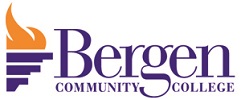Find your path to success with a diverse range of more than 120 degree, certificate, and continuing education programs.
Department Chair: Dr. Peter Dlugos
Room: A-332A
Phone: (201) 879-3619
Department Secretary: Shailly Mahajan
Room: A-336
Departmental Librarian: Dr. Paula Williams
Our Mission
The Bergen Community College programs in Philosophy and Religion provide students with opportunities to study in two related but distinct fields of academic inquiry: Philosophy and Religious studies. The mission of the Bergen’s Philosophy and Religion faculty is to provide students with a substantial and educationally meaningful program of philosophical and religious studies through well-designed and well-taught on-campus, online, and partially online (hybrid) courses. An integral feature of our mission – both in Philosophy and in Religious Studies – is to impress upon students the value of critical thought and the value of precision in the use of language and to help them develop the habit of thinking, speaking, and writing with logical rigor and clarity. In carrying out our mission, we utilize instructional methods calculated to meet the educational needs of all students, recognizing that there is a diversity of learning styles among Bergen students. We organize the learning process through appropriate combinations of lectures, group discussions, collaborative learning processes and projects, audio-visual presentations (videos, PowerPoint presentations, carefully designed reading and writing assignments [papers, tests, library research projects, etc.]).
The philosophy program introduces students to the basic principles and techniques of logical thinking and argumentation, to the history of philosophical thought, to the basic problems of philosophy (What is real? What can be known? What is really worthwhile?), and to a set of methods by which contemporary moral, social, and political problems may be clearly understood and perhaps resolved. The learning goals for the philosophy program are:
- Demonstrate understanding of philosophical theories about the nature of reality, the possibility and extent of human knowledge as well as moral, political and aesthetic value.
- Carefully read, interpret and analyze philosophical texts, valuing inclusivity, clarity and rigor in their work.
- Develop greater self-knowledge, as well as empathy for divergent views, by examining a variety of philosophical points of view.
- Engage in open and civil dialogue on philosophical issues and subjects of study.
The religious studies program introduces students to the basic problems and methods of theology; to the sacred literatures of Judaism, Christianity, Islam, and other religious traditions; and to the history, basic beliefs, and characteristic practices of the major religions of the world. The learning goals for the religious studies program are:
- Demonstrate accurate and credible knowledge of the foundational beliefs and practices of the world’s religions and their impact on human cultures and communities.
- Carefully read, interpret, analyze and compare sacred texts and connected practices, valuing inclusivity, clarity and rigor in their work.
- Develop greater self-knowledge, as well as empathy for divergent views, by exploring religious outlooks, practices, values or ethics
- Engage in open and civil dialogue about the world’s spiritual traditions.
Career Paths
The Associate of Arts degree (A.A.) is designed to provide students with the coursework needed to transfer to a four-year institution and pursue a bachelor’s degree in philosophy or religious studies. The curriculum provides students with the knowledge and skills needed to pursue a pathway to philosophy or religious studies. Students are strongly encouraged to consult with Bergen Community College faculty and Career Services as they begin to explore career options.
Transfer Opportunities
Students pursuing the Associates of Arts degree (A.A.) can transfer into majors, such as philosophy or religious studies. Many four-year colleges require coursework in philosophy or religion. Students are encouraged to work closely with Bergen Community College faculty and Advising Transfer Services. Students planning to transfer to a four-year institution in NJ can explore the “Transfer Programs” feature on NJ Transfer https://njtransfer.org.
